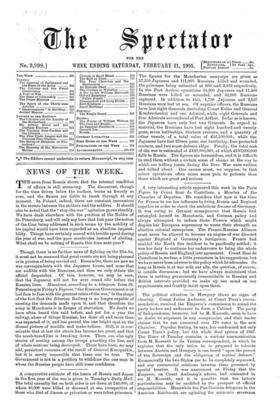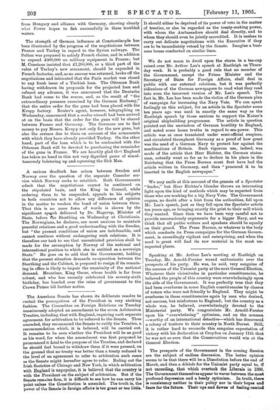The political situation in Hungary shows no signs of clearing.
Count Julius Andrassy, at Count Tisza's recom- mendation, received the Emperor's commission to sound the party leaders and endeavour to form a Cabinet. The party of Independence, however, led by M. Kossuth, seem to have no desire to acquiesce in any compromise, and their leader claims that he can command over 170 votes in the new Chamber. Popular feeling, he says, has condemned.not only Count Tisza's policy, but the whole dual system of 1867. The Times of Tuesday contains a curious communication from M. Kossuth to its Vienna correspondent, in which he explains that the only union he is prepared to tolerate between Austria and Hungary is one based " upon the person of the Sovereign and the obligation of mutual defence." Economically the two States are to be completely separated, and any commercial relations between them governed by special treaties. It was announced on Friday that the Emperor, on Count Andraasy's advice, had consented to see M. Kossuth, and it is possible that the latter's pa.rticularism may be modified by the prospect of official responsibilities. Meanwhile the Pan-German delegates in the Austrian Reichsrath are agitating for economic severance
from Hungary and alliance with Germany, showing clearly what Power hopes to fish successfully in these troubled waters.







































